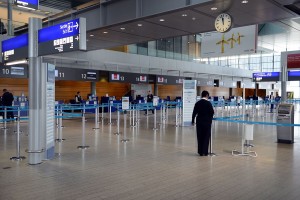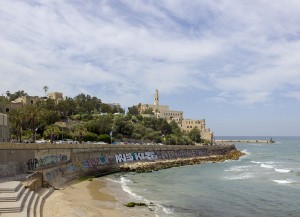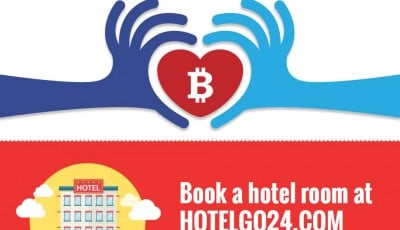Luxembourg man using Bitcoin to fund year-long international travel
Since the beginning of the year, Felix Weis – a 28-year-old freelance computer programmer from Luxembourg – has been traveling the world using just Bitcoin, reported Reuters.
Most shop clerks, bartenders and tour operators Weis has encountered have never heard of Bitcoin, and that’s OK with Weis, as he is targeting everyday folk rather than the “tech geeks” who already understand the digital currency.
“Bitcoin is the most exciting global socioeconomic experiment right now,” said Weis to Reuters. “I really believe in it.”
To prove his devotion to Bitcoin, Weis converted all of his money into the digital currency and cut up his credit card, whose remains he carries in a clear plastic bag to show doubters.
Reuters reported that often three or four people gather to listen as Weis – usually – convinces someone to accept Bitcoin as payment, then breaks out a selfie stick to document the occasion. In the 14 nations he has visited so far, Weis has taken dozens of pictures with first-time Bitcoin users holding up their mobile phone to show off their first transaction.
Reuters reported that Weis plans to visit 21 countries by the end of 2015 to symbolize the 21 million Bitcoins that can ever be mined.
On his journey, Weis adheres to three rules: he must use Bitcoin whenever possible to purchase food, accommodations and travel; he cannot use a debit or credit card and he may use limited amounts of local currency, as long as he gets it by exchanging Bitcoin for physical money with local residents he finds through LocalBitcoins.com
So far Weis has traveled much of Europe, including Israel, Turkey and Ukraine, reported Reuters.
The news agency said that after a free historical tour of the Israeli port city of Jaffa, Weis had offered to tip his tour guide in Bitcoin. In order to do so, Weis had the guide download a Bitcoin wallet application to her smartphone, then used his own phone to scan the wallet’s QR code. In a matter of seconds the guide received 30 shekels’ worth of the digital currency. Weis then brought up a map of Tel Aviv on Coinmap.org to show the guide all the nearby stores, restaurants and services where she could spend the Bitcoin.
Reuters said that in other nations, Weis has used the digital currency to pay for scuba diving lessons, bungee jumping and paragliding. His experience in each nation varies widely depending on Bitcoin awareness and adoption levels. Sometimes Weis has a limited choice of shops, restaurants and activities, and he cannot always convince a merchant to accept Bitcoin.
For a few days in one Bulgarian town, Weis’ only meal was the complimentary breakfast at his hotel. Berlin and Budapest had the most places that accepted Bitcoin. In May, while in Turkey, Weis celebrated “Bitcoin Pizza Day,” albeit two days late, as it took him that long to find a pizza joint he could persuade to accept payment in Bitcoin.
While enthusiastic about Bitcoin, Weis does not encourage other people to go to the same extremes, reported Reuters, which pointed to Bitcoin wallets’ susceptibility to hacking, the lack of oversight by an authority to help in such situations and the digital currency’s high volatility. Days after he began his travels, Weis thought he might have to cut it short by two months when Bitcoin’s price fell to $180. He’d budgeted for a year with Bitcoin selling for at least $250; as of Tuesday, the digital currency traded at approximately $235.
Reuters reported that Weis recently flew to Hong Kong to start the Asian leg of his excursion, and will travel to South America in the fall. He hopes to learn more about how the digital currency is used differently depending on economic factors. For example, Bitcoin is a popular, cheap option for sending money to countries such as the Philippines, where personal remittances account for 10 percent of the GDP. Meanwhile, in Argentina and Venezuela, high inflation and capital countries have sparked Bitcoin adoption.
Weis’ final stop will be Berlin, where he began his journey and where he is contemplating launching a software startup to make using Bitcoin “easier and safer for the average person.” He told Reuters that he would like to be paid in the digital currency and keep his savings in it as well.
Mused Weis: “Now that I know it’s possible to live off bitcoin in 14 countries, why go back to the boring old system?”
Weis has been documenting his experiences on a Tumblr blog called Bitcoin Travel as well as on his Instagram account.
Image credits:
Luxembourg Findel Airport – Jwh (CC BY-SA 3.0 LU)
Jaffa – Andrew Shiva (Author: Godot13) (CC BY-SA 3.0)













